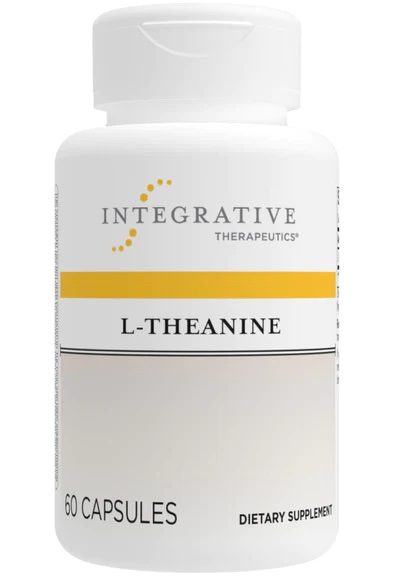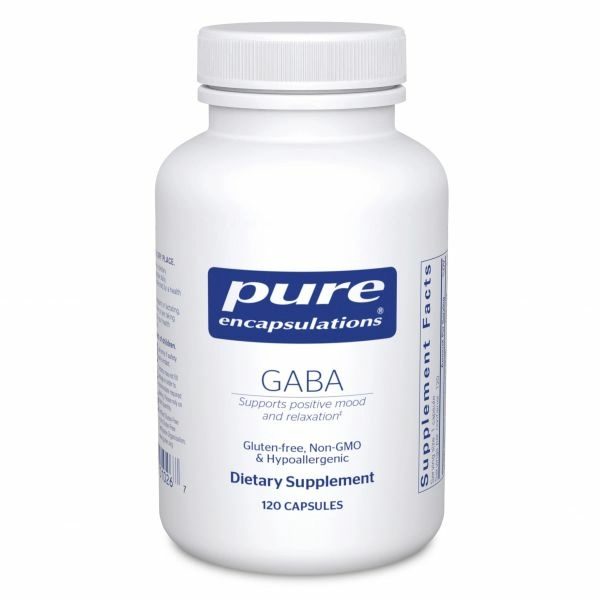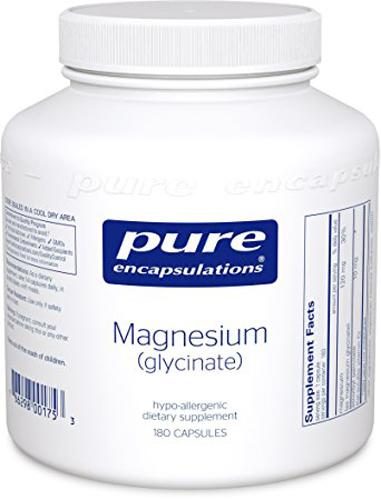
I don’t have to describe the sympathetic nervous system to you – just think of something that freaks you out. For me, it’s diving boards. I hate them – even the smallest one designed for kids. I will not jump off one unless I’m being chased by a bear. My heart rate goes up, breathing gets shallow, the hairs on the back of my neck stand up, you know the feeling. This is your fight-or-flight system – primal reactions that save you from danger.
We can live with our sympathetic system in a low-grade, chronic way throughout our stressful days, weeks, and months. We can be running from small diving boards on a continual basis. To a person with ADHD, the sympathetic responses of anxiety may present quite uniquely and require different support.
It is important to note that “anxiety” is a medical term. Generalized Anxiety Disorder (GAD) is a condition of excessive worry usually about daily issues or ordinary situations.1 The diagnostic criteria include feeling anxious, nervous, excessive worry, “dooms-day thinking”, difficulty with uncertainty, indecisiveness, restlessness, and difficulty concentrating.2
Most of us have walked into and out of these feelings or conditions at some point in our lives due to our sympathetic nervous system responses to perceived threat. What separates stress and anxiousness from GAD is persistence and timeframe, which is why getting advice from your medical professional is important.
ADHD also has a set of criteria – trouble with focus and finishing tasks, easily distracted, inattention to detail, being disorganized, forgetful, impulsive, intrusive thoughts and restlessness are a few.3 When the sympathetic nervous system is activated from anxiety, fear, and stress, the ADHD symptoms worsen due to the basic biochemistry of fight-or-flight. So this may mean even more ADHD traits. When someone has a decline in their ADHD stability, try to consider the stress and anxiety they may be experiencing. They may not need more medication—they may just need help calming down.

Our stress reactions come from the biochemistry of cortisol, epinephrine, and norepinephrine. Cortisol is a stress hormone that is secreted from your adrenal glands, along with the neurotransmitters epinephrine and norepinephrine. Classically, cortisol wakes us up in the morning and declines throughout the day so that we sleep at night. But, cortisol is part of the acute fear response and its main role is to tell the liver to release stored glucose. Cortisol is more responsible for the metabolic activity of stress; it helps you run from diving boards even when fasting. Studies show people with ADHD actually have higher baseline cortisol levels than everyone else.4
Epinephrine and norepinephrine are neurotransmitters that help with your increased breathing, heart rate, blood pressure, perspiration, and nervous system responses to stress. In studies involving ADHD children, elevated norepinephrine and epinephrine levels have been measured in urine.5
This means that daily baseline stress hormones and neurotransmitters are already in fight-or-flight for the individual with ADHD. The sympathetic nervous system is dominant. When we are afraid, the sympathetic nervous system takes over the brain and changes our thinking – worrying, ruminating, over-thinking, over-analyzing, replaying a scenario from the past, not letting something go. We may lose our keys or phones more easily, feeling more absentminded. These are all traits of the sympathetic overdrive, and you can see how someone would feel that they may have ADHD or the individual with ADHD may feel like they are worsening.
How do we calm down?

The parasympathetic nervous system balances out the sympathetic system. This is the “rest-and-digest” system. Gamma Amino Butyric Acid (GABA) is the main neurotransmitter that calms us. Fear and anxiety reactions are uniquely designed to rev your biochemical engine, and to someone with ADHD, this means even more inattentiveness, disorganization, and forgetfulness. Deep breathing and supporting the parasympathetic system is vital for managing ADHD.
Take a deep breath.
No, really, deep breathing does help you calm down. Breathing into the lower part of your lungs stimulates the release of GABA from your parasympathetic nervous system. For the brain, you think clearer – in fact, critical thinking, creativity, and learning are all advanced when we are in the parasympathetic mind. Studies have verified this. Reduced cortisol levels, lowered heart rate and blood pressure, and more sustained attention have been measured with diaphragmatic breathing.6
Take a supplement.

- L-Theanine
Deep breathing is great, but I do recognize that your stress may be bigger than this, and require something more. Keep breathing, because it will work, eventually. But, today, you may need supplemental help. In this case, L-Theanine is a great solution. L-Theanine is an amino acid found in green tea and black tea and can cross the blood brain barrier within 20-30 minutes. L-theanine is not a sedative, but promotes relaxation by increasing brain serotonin, dopamine, and GABA levels.7 There are many brands of L-Theanine I use, but typically the doses of 200-400 mg 1-2 x per day help manage sympathetic overdrive.

- GABA
Speaking of GABA, you can take GABA. Pharma GABA is the over-the-counter form made from certain strains of lactobacillus. While reportedly being effective in calming the nervous system, it may not be able to cross the blood-brain barrier. That said, know that the nervous system response is not local to your brain, and the feedback pathways from the rest of the nervous system influence your brain.
You actually have more nerve endings in the digestive system than in the brain. So indirectly to the brain and directly to the body, taking GABA can and does have a calming effect. For me, I feel my anxiety as butterflies in my stomach. Taking just 200-300 mg of GABA relieves this reaction.

- Magnesium Glycinate
In addition to L-Theanine and GABA, Magnesium Glycinate is an effective chill pill. Magnesium glycinate blocks the activity of the sympathetic system by binding to calming, inhibitory receptors, creating a resting state for the nervous system.8 In addition, magnesium glycinate helps regulate the cortisol. Studies show that magnesium glycinate supplementation lowers urinary cortisol levels.9 Dosing ranges from 300-800 mg per day.
There is no real toxicity to magnesium – too much would cause a loose stool, and if that happens, back the dose down by 100-200 mg. If your anxiety has leveled-up, you can take Mag Glycinate, L-Theanine and GABA all together, just don’t forget your deep breathing. Remember, supplements are not to replace your skills, but are rather akin to training wheels.
Be a creature of habit.

Managing anxiety, stress, and fear is no easy challenge. But, I do remember my days working with at-risk youth at a behavior treatment center. Most of the kids came from very abusive family backgrounds. One strategy I used to help the kids have better days was simple – certainty and regular routines. You see, uncertainty is a driving force for anxiety. These kids came from a world of uncertainty – never knowing when the threat would happen, or in some cases when their next meal would happen. Comfort and peace were absent and they were left guessing when safety would happen. When you experience this level of chaos in life, anxiety is nearly inevitable.
Each day, I would write the schedule on the board. We would also go through expectations for behavior, there was no guessing on what would happen that day. In addition, my reactions were also neutral and consistent. There was no guessing how I was going to react. Consistency is a catalyst for calm and allows our guard to be lowered.
For you, be a creature of habit. Go to bed and wake up at the same time, eat meals at a regular time, and have a routine that your body gets used to. Be consistent with taking your supplements. I am not saying to be regimented, but general regularity will improve your nervous system rhythms. If you have a chaotic routine, it is hard for you to feel certain about your world.
I usually tell people with ADHD, we want your parasympathetic nervous system to be as powerful as your sympathetic system. This means A LOT of conditioning. They have to work harder to calm down. You see, your sympathetic nervous system is on auto-drive – it’s pretty automatic because you don’t want to stop and think about running from the diving board. So work at calming. It can make a big difference for stabilizing and thriving with ADHD.
If you have comments and/or questions about this blog, email us at blog@peoplesrx.com.

Amy Nelson, ND* received her Naturopathic Doctorate from the National College of Natural Medicine in Portland, OR where she studied nutrition, homeopathy, herbal and functional medicine. In addition, Dr. Nelson was the Associate at The IBS Treatment Center in Santa Monica where she treated irritable bowel syndrome and complex food allergies. Dr. Nelson utilizes her experience in natural medicine to address female and male hormonal imbalances, mental health, and digestive disorders. Amy is available for consultation at: DrAmyNelsonND.com.
*Although licensed in other states, Naturopathic Doctors are not currently licensed in Texas. To support licensure efforts, please visit www.txand.org.
References:
- https://www.hopkinsmedicine.org/health/conditions-and-diseases/generalized-anxiety-disorder#:~:text=Generalized%20anxiety%20disorder%20is%20a,muscle%20tension%2C%20and%20trouble%20sleeping.
- Sapra A, Bhandari P, Sharma S, Chanpura T, Lopp L. Using Generalized Anxiety Disorder-2 (GAD-2) and GAD-7 in a Primary Care Setting. Cureus. 2020 May 21;12(5):e8224. doi: 10.7759/cureus.8224. PMID: 32582485; PMCID: PMC7306644.
- https://www.cdc.gov/ncbddd/adhd/diagnosis.html#:~:text=Often%20fails%20to%20give%20close,listen%20when%20spoken%20to%20directly.
- Corominas-Roso M, Palomar G, Ferrer R, Real A, Nogueira M, Corrales M, Casas M, Ramos-Quiroga JA. Cortisol Response to Stress in Adults with Attention Deficit Hyperactivity Disorder. Int J Neuropsychopharmacol. 2015 Mar 17;18(9):pyv027. doi: 10.1093/ijnp/pyv027. PMID: 25782526; PMCID: PMC4576517.
- Dvoráková M, Jezová D, Blazícek P, Trebatická J, Skodácek I, Suba J, Iveta W, Rohdewald P, Duracková Z. Urinary catecholamines in children with attention deficit hyperactivity disorder (ADHD): modulation by a polyphenolic extract from pine bark (pycnogenol). Nutr Neurosci. 2007 Jun-Aug;10(3-4):151-7. doi: 10.1080/09513590701565443. PMID: 18019397.
- Ma X, Yue ZQ, Gong ZQ, Zhang H, Duan NY, Shi YT, Wei GX, Li YF. The Effect of Diaphragmatic Breathing on Attention, Negative Affect and Stress in Healthy Adults. Front Psychol. 2017 Jun 6;8:874. doi: 10.3389/fpsyg.2017.00874. PMID: 28626434; PMCID: PMC5455070.
- Nathan PJ, Lu K, Gray M, Oliver C. The neuropharmacology of L-theanine(N-ethyl-L-glutamine): a possible neuroprotective and cognitive enhancing agent. J Herb Pharmacother. 2006;6(2):21-30. PMID: 17182482.
- Kirkland AE, Sarlo GL, Holton KF. The Role of Magnesium in Neurological Disorders. Nutrients. 2018 Jun 6;10(6):730. doi: 10.3390/nu10060730. PMID: 29882776; PMCID: PMC6024559.
- Schutten JC, Joris PJ, Minović I, Post A, van Beek AP, de Borst MH, Mensink RP, Bakker SJL. Long-term magnesium supplementation improves glucocorticoid metabolism: A post-hoc analysis of an intervention trial. Clin Endocrinol (Oxf). 2021 Feb;94(2):150-157. doi: 10.1111/cen.14350. Epub 2020 Oct 26. PMID: 33030273; PMCID: PMC7821302.
